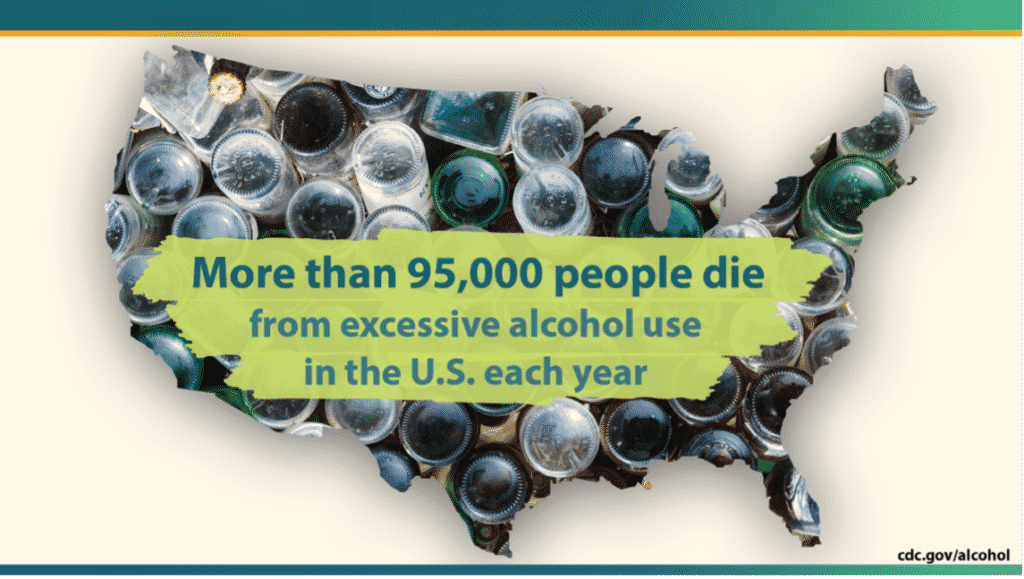The Early Signs of Alcoholism, Stages of Continued Abuse, and Dangers of Alcohol Induced Blackouts
For most people, drinking is something that can be enjoyed amongst a healthy and productive life. They never worry about falling into the early signs of alcoholism, spiraling through the stages of alcoholism, or waking up from alcohol induced blackouts. They might experience a couple of mildly embarrassing mishaps and an occasional hangover, but for the most part they drink socially and don’t feel the need to drink to live their lives. Others might look at drinking as a hobby; they frequent bars on the weekends, enjoy trying different types of alcohol as one would with food, and find camaraderie in the night life that surrounds bars and clubs. Even if they drink a lot, they still maintain healthy relationships and productive lives, and know when to stop before anything detrimental happens to either them or others around them.

However, there are those unfortunate individuals who compulsively and/or binge drink and fall into alcohol induced blackouts. These individuals feel the need to drink no matter what is going on in their lives, good or bad. The results of heavy drinking are ravishing on their lives and to those around them. According to the National Center for Drug Abuse Statistics, 95K Americans die from the effects of alcohol abuse every year1. But what are the early signs of alcoholism, the following stages of alcoholism, and alcohol induced blackouts?
Early Signs of Alcoholism
The early signs of alcoholism vary from person to person. There are those who start to lose things, such as money, relationships, and mental health very quickly. Others seem to have a stronghold on their drinking because they are married, have a job, and maintain a home or apartment, but behind their social status things are crumbling slowly and surely. However, regardless of how things look on the outside, there are definite early signs of alcoholism that every alcoholic goes through. These include experiencing alcohol induced blackouts (bouts short-term memory loss), exhibiting signs of irritability and extreme mood swings, making excuses for drinking such as to relax, choosing drinking over other responsibilities and obligations, becoming isolated and distant from friends and family members, drinking alone or in secrecy, feeling hungover when not drinking, changing appearance and group of acquaintances you hang out with2.

Check Your Insurance Coverage for FREE
Find out if your insurance covers addiction treatment in minutes. We accept most insurance!
If you have experienced any of these signs, you probably are in the early stages of alcoholism. These signs, if ignored, have the potential to increase into more serious mental, physical, and social problems. To further assist determining if you have a problem with alcohol, there is a screening tool called CAGE, which is a questionnaire meant to measure how bad one’s drinking is. These four questions are: Have you ever felt you should cut down on your drinking? Have people annoyed you by criticizing your drinking? Have you ever felt bad or guilty about your drinking? Have you ever had a drink first thing in the morning to steady your nerves or get over a hangover? If you answered yes to two or more of these questions, you may be experiencing the early signs of alcoholism, and might dive into the later stages of alcoholism.
Stages of Alcoholism
Some people find themselves going through the but have either been able to maintain some sort of semblance of a life or have simply ignored their life falling apart. They have probably started to experience more alcohol induced blackouts, which according to the National Institute on Alcohol Abuse and Alcoholism, are “gaps in a person’s memory for events that occurred while they were intoxicated. These gaps happen when a person drinks enough alcohol to temporarily block the transfer of memories from short-term to long-term storage—known as memory consolidation—in a brain area called the hippocampus.”3 Furthermore, there are two different types of blackouts; “fragmentary blackouts” are the most common, which is when one has a splotchy memory for events occurring during drinking. Sometimes these are called brownouts.
The second type of blackout is when blocks of hours are completely wiped from the memory. Even though the body is still awake, the brain is not creating any new memories. In these blackouts, events transpire that usually wouldn’t happen when in control of your actions. Since alcohol induced blackouts occur at higher blood alcohol concentration, such cognitive abilities like impulse control, attention, judgment, and decision-making are severely defected. People are prone to act irrationally, and since they do not remember what they did, cannot fully take responsibility for their actions until someone else tells them what is they did. Yet, there are other stages of alcoholism past experiencing brownouts and blackouts. According to biostatistician and alcohol abuse researcher Elvin Morton Jellinek, the middle stages of alcoholism are “the most crucial stage in Jellinek’s theory, and when a person begins to drink frequently and consistently, maybe even starting off their day with a drink. They may struggle with worsening relationships with friends and family or experience changes to their behavior that impacts them negatively.They often feel health impacts such as hangovers or feeling sick more often when not drinking”4.
Reach out to Hotel California by the Sea
We specialize in treating addiction and other co-occurring disorders, such as PTSD. Our Admissions specialists are available to walk you through the best options for treating your addiction.
In the middle stages of alcoholism, the alcoholic is past the point of being concerned with their relationships, whether it be their partner, families, or co-workers, or all, and seem to only feel okay and normal when they are drinking. The final stage of alcoholism, and the scariest, is “a complete loss of control over alcohol consumption—where the person feels they must drink. At this point, the individual’s body begins to require the presence of alcohol to feel normal. When the individual does not consume alcohol regularly, they may experience withdrawal symptoms and intense cravings.” When an alcoholic gets to this point, it may take years, and a lot of loss, to want to change their ways. Even when their family has left, or their job has fired them, or they had to file for bankruptcy, they will still continue to drink, until they die, or are thrown in jail, or a psych ward. Thankfully, with a mixture of detox, rehabs, and support-groups like AA, the alcoholic in suffering can find refuge and recovery.
References:
- Alcohol Abuse Statistics [2021]: National + State Data – NCDAS (drugabusestatistics.org)
- Signs of Alcoholism – Know the Warning Signs of Alcohol Abuse (alcoholrehabguide.org)
- Interrupted Memories: Alcohol-Induced Blackouts | National Institute on Alcohol Abuse and Alcoholism (NIAAA) (nih.gov)
- The Four Stages of Alcoholism: Pre, Early, Middle, & Late
